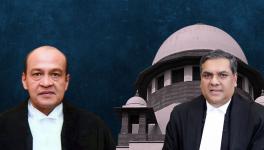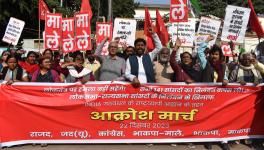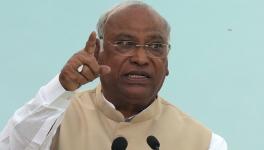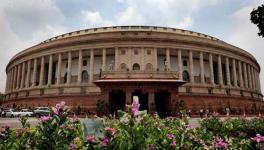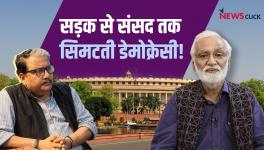A Rajya Sabha for Every State
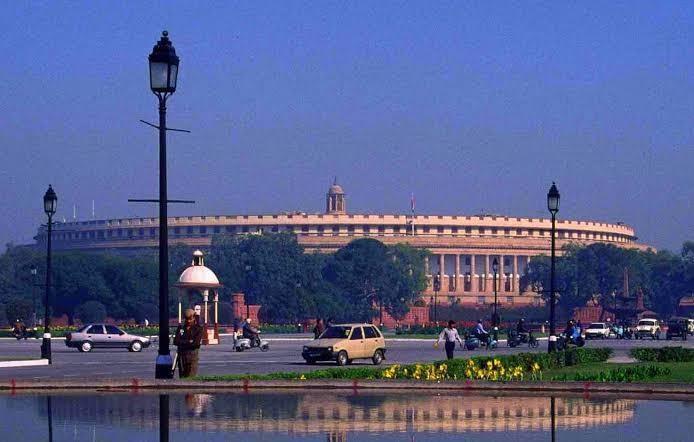
The ongoing session of the Rajya Sabha is its 250th assembly. The House is celebrating this milestone in its functioning in multiple ways. A commemorative coin, a stamp and a book containing essays on the role and importance of Rajya Sabha have been launched. On the first day of the session, the House held a special discussion on the ‘role of the Rajya Sabha in Indian polity and the way forward’. The discussion saw introductory remarks made by the Chairman of Rajya Sabha, Venkaiah Naidu who stressed on the importance of the second chamber in our parliamentary system. He also recapped the contribution of Rajya Sabha in key constitutional and social legislation since 1952, a theme which was echoed by Prime Minister Narendra Modi, former prime minister Manmohan Singh and MPs from across the political spectrum.
During the framing of our Constitution, two broad arguments were advanced for having a second chamber at the national level. First, a second house would act as a checking mechanism on hasty legislative actions initiated by a popularly elected house. The second argument was that debate in Parliament would be enriched by contributions of individuals who either did not want to contest or could not win a general election. However, the opinion in the Constituent Assembly was divided on the question of having a second chamber in states.
Some members were opposed to the idea. Prof KT Shah, a member of constituent assembly from Bihar, was one such member. He said that a second chamber’s “involve considerable outlay from the public exchequer on account of the salaries and allowances of Members and incidental charges. They only aid party bosses to distribute more patronage, and only help in obstructing or delaying the necessary legislation which the people have given their votes for.”
The solution that the framers of the Constitution arrived at was to mandate a second chamber, the Rajya Sabha, at the national level. For the state level, they left the decision to the state legislature to decide whether it wanted a second chamber, the legislative council. Currently, seven states have Legislative Councils. These are Bihar, Uttar Pradesh, Maharashtra, Karnataka, Andhra Pradesh and Telangana. (The Jammu and Kashmir legislative council was recently abolished after the region was made into a Union Territory.)
The Constitution specifies that for a state to have a legislative council, its legislature should pass a resolution, with a special majority, to this effect. Thereafter a Bill is passed in Parliament for the creation of the legislative council. This then results in the creation of a legislative council in the state. A council in a state can also be abolished by following the same process. The last Bill for creation of a council was passed in 2007, for the creation of a legislative council in (undivided) Andhra Pradesh.
The Constitution also specifies the limits with respect to the membership of the legislative council. The maximum number of members in a legislative council is capped to one-third of the members in the legislative assembly. The minimum number of members is set at forty. Members of the legislative assembly elect a third of the members of the council. Another third is elected by electorates consisting of members of municipalities, district boards and other local authorities in the state.
Teachers in the state elect a twelfth of the members in the council and another twelfth are elected by an electorate comprised of registered graduates in the state. The state governor nominates the remaining members, based on their contributions in literature, science, art, the cooperative movement, and social service.
But legislative councils cannot be equated with the Rajya Sabha, which is the much more powerful second chamber. For one, it is a co-equal to Lok Sabha and has substantial powers to shape non-financial legislation at the national level. Legislative Councils, on the other hand, have limited powers. Any amendment made by them to a legislation can be overridden by the legislative assembly. Members of legislative councils, unlike their counterparts in the assembly, cannot vote in the election of the President or of members of Rajya Sabha.
However, having or not having a legislative council in states is a political issue. Tamil Nadu is one such example. The creation of a legislative council in the state has been a contentious issue for the last three decades. Tamil Nadu had a bicameral legislature till 1985. In 1986 the state’s legislative assembly, with AIADMK in the majority, passed a resolution for abolishing the legislative council. Since then, DMK has made attempts to establish the legislative council when it comes to power and AIADMK has ensured that DMK’s efforts are thwarted when it is the ruling party in the state. The last DMK attempt was in 2010, which was negated by the AIADMK in 2012.
While political parties in Tamil Nadu disagree upon the need of a legislative council, the situation is different in other states. In the 2018 Madhya Pradesh State elections, the Congress party in its election manifesto had promised the creation of a legislative council when it came to power. In 2010, MLAs of the Assam legislative assembly unanimously passed a resolution for the creation of the legislative council. In 2012 there was unanimity in Rajasthan Vidhan Sabha for the creation of a legislative council. The Bills for creating these legislative councils are currently pending in Rajya Sabha.
The parliamentary committee which examined the Rajasthan Bill made important recommendations with respect to legislative councils. The committee observed that “there is a need to evolve a national policy conscientious with regard to creation/abolition of Legislative Council particularly in regard to the fact that the status of Second Chamber cannot be of temporary in nature depending on the mood of the Government of the day nor can be abolished once created, only at the whims and fancy of a newly elected Government in the State.”
There are serious gaps in legislative scrutiny currently done by legislative assemblies. This lack of scrutiny makes for a strong case for a Rajya Sabha like second chamber in states. However, in addition to a national policy on legislative councils, a larger debate needs to take place on the law-making powers of legislative councils. Currently, they can only delay legislation but not make any changes to it. However, the need of the hour is a second chamber which can play a similar role in states as the Rajya Sabha does at the national level.
Chakshu Roy heads legislative and civic engagement initiatives at PRS Legislative Research. The views are personal.
Get the latest reports & analysis with people's perspective on Protests, movements & deep analytical videos, discussions of the current affairs in your Telegram app. Subscribe to NewsClick's Telegram channel & get Real-Time updates on stories, as they get published on our website.









